Suranjit’s objections to 1972 constitution and the debate on rewriting

When the Constitution of Bangladesh was being drafted in 1972, Suranjit Sengupta, the youngest member of the committee tasked with the drafting process, had said, "The inclusion of these principles (the four basic principles) in our constitution appears to have been influenced by the Indian Constitution, which was itself modelled after Ireland's and Pakistan's 1956 constitutions. But I do not believe that, just because such provisions exist elsewhere, we are obliged to include them in ours." He had voiced his critique of the four fundamental principles during discussions at the constituent assembly.
After Bangladesh's independence in 1971, a 34-member committee, led by prominent lawyer Dr Kamal Hossain, was formed to draft the constitution of the new country. Six members of this committee (including Sengupta) submitted notes of dissent on various constitutional issues, which reflected their progressive thinking.
As debates about rewriting the country's constitution or major amendments to it have resurfaced recently, with a commission now tasked with looking into constitutional reforms, revisiting these early discussions may shed light on the foundational flaws in it. While the interim government lacks the authority to amend the constitution, the commission can submit a report recommending changes or amendments. The government that is formed after the next parliamentary election will have the power to implement these recommendations if they achieve a two-thirds majority in the House.
However, some have been advocating for a complete constitutional rewrite, and doing so would require a constituent assembly. Whether the interim government has the authority to call for an election to form such a body remains a big question, as its advisers are sworn to uphold the existing constitution. Rewriting it, then, would be a considerably complex task.
Another option is a proposal to make the constitution democratic, agreed upon by all political parties participating in the election. This would mean that whichever party forms the next government would push the constitutional amendments through consensus in parliament.
However, before focusing solely on the process of amending or rewriting the constitution, it is crucial to revisit Suranjit Sengupta's critiques from 1972.
Sengupta, a noted lawyer, freedom fighter and later an Awami League leader, voiced the highest number of objections to the draft constitution, dissenting on nearly every clause. He argued that under the socialist principle, the public would be the ultimate owner of production, so joint ownership of resources and means of production should be enshrined as a fundamental right. He advocated for a cap on individual ownership of wealth, citing the examples of other socialist states such as the Soviet Union.
At the time, when the constitution of a country born out of a war was being written, Sengupta pushed for declaring food, clothing and shelter as fundamental rights, thus making the state accountable for their provisions. He argued that a government failing to meet the basic needs of its citizens had no right to remain in power. He called for the inclusion of economic rights and the right to education as fundamental rights as well.
He also sought provisions ensuring not just the political, economic and cultural aspects, but the overall development of the ethnic minority groups—an issue that remains relevant till date. In the 15th Amendment introduced in 2011, a section on ethnic minority groups was added to the constitution, to the dissatisfaction of these communities who wanted recognition as "Adibashi." Therefore, the discussion of 1972 on this issue requires some consideration now.
Sengupta also criticised the provision of reserved seats for women in parliament, terming it undemocratic. He argued that this perpetuates women's dependence rather than promoting true gender equality. He proposed replacing the provision of reserved seats with a clause guaranteeing equal rights for men and women in all spheres of life.
The debate on the appointment of the chief election commissioner and other election commissioners, which continues till date, took place in 1972 as well. Sengupta suggested that only individuals who had served as judges at the Supreme Court or the High Court should be eligible for these posts, given their critical role in upholding democracy. That's why these appointments should be done with people from the judiciary, which is meant to be beyond political influence.
Aside from Sengupta, five other members submitted dissenting opinions during the drafting process in 1972: Hafez Habibur Rahman, Asaduzzaman Khan, AK Mosharraf Hossain Akand, Abdul Muntakim Chowdhury, and Dr Khitish Chandra Mondal.
One of the most debated articles in the constitution is Article 70, which prevents MPs from voting against their party. This article was also controversial in 1972. Hafez Habibur Rahman argued that it would turn parliament into an autocratic body controlled by party leaders and hinder the freedom of speech of the parliamentarians. He proposed cancelling this provision, saying MPs are supposed to be accountable to their voters first once they are elected to parliament.
The idea of a bicameral parliament, recently proposed by BNP Acting Chairman Tarique Rahman, was also raised in the 1972 constituent assembly by Hafez Habibur Rahman.
The concentration of power in the Prime Minister's Office has been a long-standing issue in Bangladesh. Many members of the 1972 constituent assembly opposed giving such broad authority to the prime minister, while some others argued it was necessary for effective parliamentary democracy. However, no one would probably deny that the power imbalance between the prime minister and the president has exacerbated political crises in Bangladesh over the last 53 years.
Hence, supporters of constitutional reforms now argue for balancing the authorities of the prime minister and the president, limiting a person's service as the prime minister to two terms, non-partisanship of the president, and a constitutional ban on an individual being the prime minister, leader of parliament, and chief of their party all at the same time.
While a well-drafted constitution is essential for a democratic and humane state, it is not enough. Without reforms to the complementary legal framework and institutions, simply amending or rewriting the constitution will not deliver the Bangladesh that many aspire to see. It largely depends on the competence, integrity and patriotism of those implementing reforms and those running the country going forward.
Though constitutional amendments are crucial, the interim government must prioritise controlling inflation, maintaining law and order, and protecting the freedom of speech and media. Without addressing these issues, its reform efforts may falter, leading to further instability.
This article was first published on The Daily Star Bangla on October 7, 2024.
Amin Al Rasheed is a journalist and author.
Views expressed in this article are the author's own.
Follow The Daily Star Opinion on Facebook for the latest opinions, commentaries and analyses by experts and professionals. To contribute your article or letter to The Daily Star Opinion, see our guidelines for submission.

 For all latest news, follow The Daily Star's Google News channel.
For all latest news, follow The Daily Star's Google News channel. 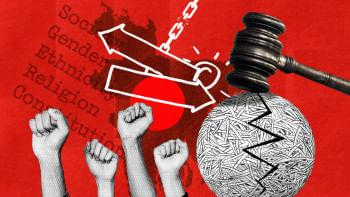
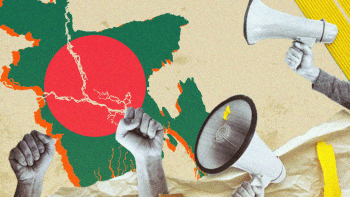


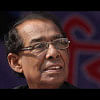
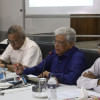

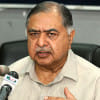



Comments